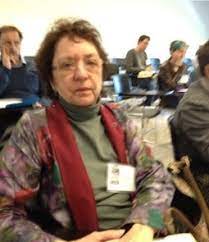Hartsock, Nancy

Bio: (1943-2015) American political scientist. Nancy Hartsock completed her doctoral studies in political science at the University of Chicago and taught political science and women's studies at the University of Washington. In her doctoral dissertation, Hartsock studied the political thought of the leaders of the African-American civic movement. She was a member of several feminist groups, and as an activist, she fought against gender, racial and sexual discrimination.
Her theory is inspired by Marxist theory and a postmodern attitude toward epistemology. Hartsock studies the relations of domination and investigates how they are formed, how they shape individuals, in what ways resistance to domination is given, and how relations of domination change. She believes that the relations of power and domination are always connected with epistemology, so she wants to build an alternative approach to epistemology and ontology, which would connect the knowledge and everyday life experience of discriminated groups. This is how standpoint epistemology developed. She believes that social relations, and our position within them, structure the ways we understand the world and shape the concepts and categories we use.
Although she was close to Marxism, she believed that epistemology and science that starts from a feminist viewpoint have greater potential to describe and understand the core of social relations. In her study of the global market, she starts from the view that women are involved in that market differently. Women, in addition to selling their labor, also reproduce that labor through biological reproduction and social reproduction. On the other hand, women are more often victims of the global chain of forced labor and human trafficking.
Fields of research
Capitalism Civil Society Discrimination Domination Everyday Life Gender Knowledge Leaders Market Movements, Social Patriarchy Postmodernism Power, Political Protests Race Socialism WorkTheoretical approaches
Feminism, Marxist (Socialist)Main works
Building Feminist Theory (1981);
Money, Sex and Power: Toward a Feminist Historical Materialism (1983);
Women and Poverty (1990);
The Feminist Standpoint Revisited and Other Essays (1998);
Postmodernism and the Political Change (1999).

